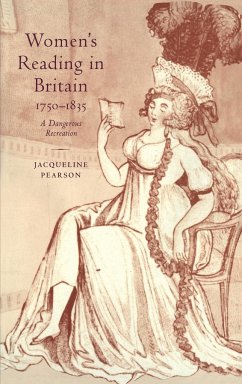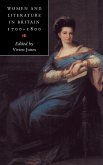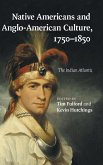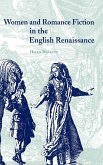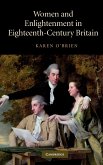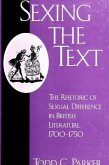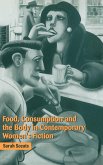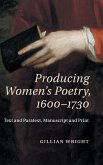The growth of female reading audiences from the mid-eighteenth century to the early Victorian era represents both a vital episode in women's history and a highly significant factor in shaping the literary production of the period. This book offers for the first time a broad overview and detailed analysis of this growing readership, its representation in literature, and the extent of its influence. It examines both historical women readers, including Laetitia Pilkington, Elizabeth Carter, Frances Burney and Jane Austen, and a wide range of texts in which the figure of the woman reader is important, from Gothic (and other) novels to conduct books and educational works, letters, journals and memoirs, political and economic works, and texts on history and science. Jacqueline Pearson's study offers illuminating insights which help to make sense of the ambivalent and contradictory attitudes of the age to the key figure of the woman reader.
Table of contents:
Introduction; 1. Pygmalionesses and the pencil under the petticoat: Richardson, Johnson and Byron; 2. What should girls and women read? 3. The pleasures and perils of reading; 4. Pleasures and perils of reading: some case histories; 5. Where and how should women read? 6. Preparing for equality: class, gender, reading; 7. A dangerous recreation: women and novel reading; Conclusion; Notes; Select Bibliography; Index.
The growth of female reading audiences from the mid-eighteenth century to the early Victorian era represents a vital episode in women's history and a highly significant factor in shaping the period's literary production. Pearson offers the first broad overview and detailed analysis of this growing readership, its representation and influence.
The first broad overview and detailed analysis of female reading audiences in this period.
Hinweis: Dieser Artikel kann nur an eine deutsche Lieferadresse ausgeliefert werden.
Table of contents:
Introduction; 1. Pygmalionesses and the pencil under the petticoat: Richardson, Johnson and Byron; 2. What should girls and women read? 3. The pleasures and perils of reading; 4. Pleasures and perils of reading: some case histories; 5. Where and how should women read? 6. Preparing for equality: class, gender, reading; 7. A dangerous recreation: women and novel reading; Conclusion; Notes; Select Bibliography; Index.
The growth of female reading audiences from the mid-eighteenth century to the early Victorian era represents a vital episode in women's history and a highly significant factor in shaping the period's literary production. Pearson offers the first broad overview and detailed analysis of this growing readership, its representation and influence.
The first broad overview and detailed analysis of female reading audiences in this period.
Hinweis: Dieser Artikel kann nur an eine deutsche Lieferadresse ausgeliefert werden.

